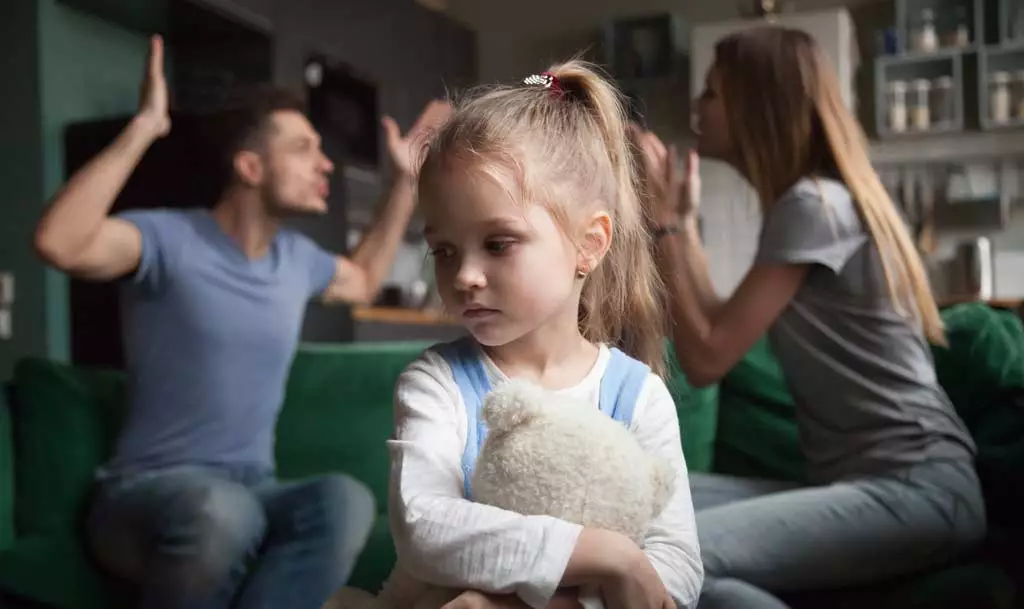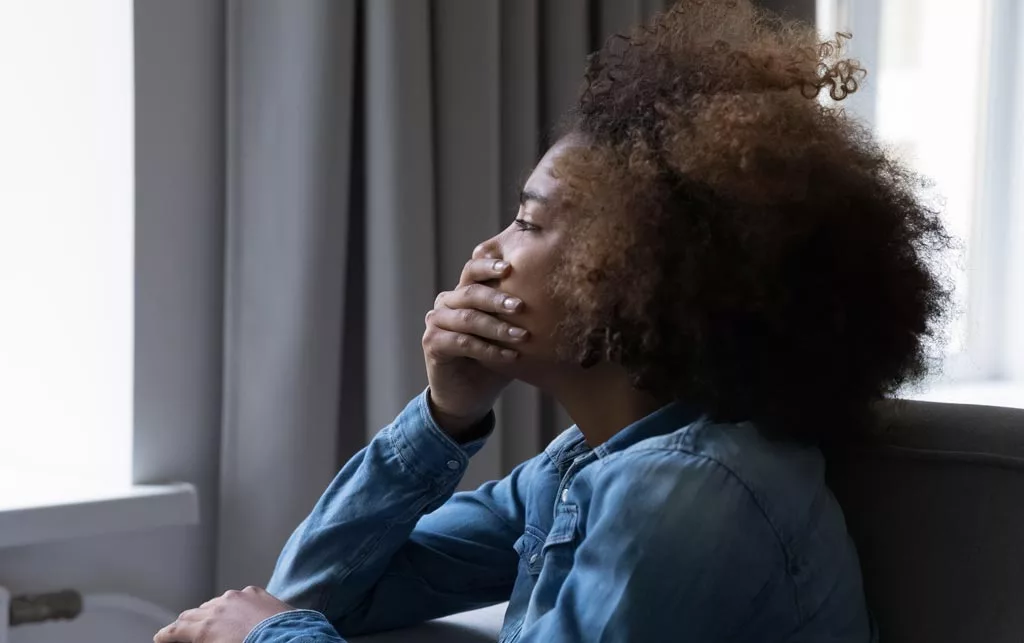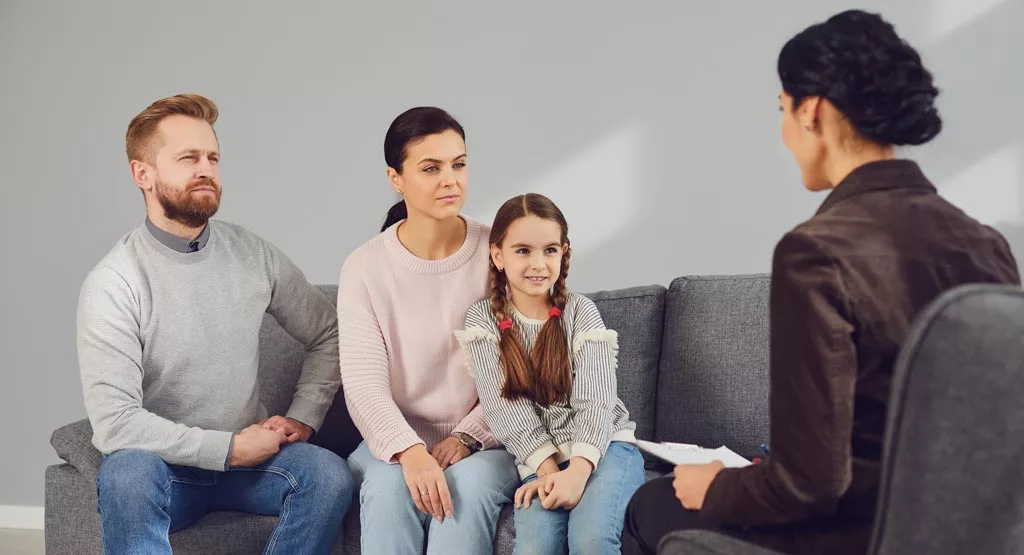
How to Treat Childhood Trauma in Adults
Sometimes the past doesn’t remain in the past. It may come as a shock to someone who suffered childhood trauma to find that the traumatic issues they faced as a kid persists in adulthood.
It’s natural to be concerned that your past traumatic experiences will have a negative impact on your present well-being, relationships, and career prospects. Maybe you feel lost when it comes to figuring out how to begin healing from childhood trauma.
Lately, you just haven’t been yourself. You may have been wondering: “Am I still dealing with unresolved childhood trauma?”
Maybe the effects of your tragedy are carrying over into adulthood and explaining your perception that your world has been flipped upside down. Why now, if that’s the case?
This is known as unresolved trauma. What exactly is the definition of this term?
Keep reading to find out the answers to these questions from Emerald Isle, a top center nationwide for complex trauma treatment!
Free Mental Health Assessment
What Is Unresolved Trauma?
Table of Contents
The word “unresolved trauma” may be familiar, but what does it actually mean? You have convinced yourself that the incident was isolated and that you have moved on.
It’s also possible that you may have participated in treatment. But the fact is, childhood trauma may affect an individual for the rest of their life.
Your symptoms, interpersonal problems, and low self-esteem are all permanent reminders of the experiences, no matter how hard you try to forget them or how much you try to block them out of your mind. These childhood trauma events can stick with you for life.
Many people who have experienced childhood trauma believe they have always been on their own, so they learn to cope by relying on their own resources.
However, there’s a limit to what a single person can do. Because of this, the most profound after-effects of childhood trauma are frequently “unresolved.”
The Many Effects of Trauma
You need a therapist with expertise in childhood trauma in order to get to the root of your problems, but you may have a hard time finding one. At Emerald Isle, our clinical team and providers are well-versed in trauma treatment and help clients process and move through unresolved trauma on a daily basis.
There is no playbook for overcoming traumatic experiences from one’s youth. You’ve had your own unique set of experiences, each of which has shaped you in its own unique manner. Childhood trauma has a significant impact on who we become as adults.
Unfortunately, it’s difficult to get to the bottom of what happened to you as a kid. These signs may temporarily disappear. However, reliving your traumatic experiences might occur if you are exposed to stress that generates an emotional upheaval or if an incident is too similar to a reminder of your prior trauma.
Although your traumatic events occurred “in the past,” they will continue to affect your life and the lives of others around you until you fully comprehend how they manifest in your current experiences, symptoms, and relationships.
Repetitive Behavior and Childhood Trauma

We all have a “compulsion to repeat,” according to Freud, even if we don’t want to. That’s why it’s possible to keep getting into relationships that seem similar to the ones that caused you pain in the past.
Your symptoms and/or actions might manifest in a wide variety of ways. Once again, these will be unique to you. The past is never “simply” the past; it is the most essential thing to remember.
Why Is Childhood Trauma So Common?
In cases of physical or sexual abuse, for example, the effects of trauma can be readily seen. However, there are numerous types of childhood trauma that you might not recognize as trauma at all.
Other traumatic experiences include neglect, the death of a parent, a life-threatening disease, a learning handicap that causes self-doubt, having too many siblings, having a parent who is emotionally distant, unavailable, or worried, and having a parent who experienced trauma as a kid.
Perhaps you and/or your parents suffered from neglect, the death of a parent, a significant illness, a learning impairment, an excessive number of siblings, parents who were emotionally unavailable or worried, or a mix of these.
Neglect in childhood occurs when a person’s psychological or physiological needs are not met. It’s possible that this occurred because your parents were too busy or stressed to pay attention to you.
Generational Trauma and Trauma Among Caregivers
When a parent suffers from mental health disorders, it causes their children to grow up faster than expected. They often have to act as the mother or father to younger siblings and be there for them emotionally.
Whatever the reason, your emotional needs were either ignored, disregarded, or despised. No parent has the right to utilize their child for their own gain.
If one of one’s parents dies or abandons them when one is young, it may be devastating. The death of a parent is hard enough, even if you have other loving family members or at least one other parent.
If no one acknowledged contributing to your anguish, then the loss you felt remains unresolved. A period of mourning was necessary and is still necessary for you.
What Are the Side Effects of Unresolved Childhood Trauma
Since you discovered at a young age how easily a dear friend or family member might be stolen from you, you value those who are in your life even more. You learn to fear death as a child.
You are still at a vulnerable age, even if you lost a parent while you were in your twenties. Because proximity and dependence suggest the possibility of loss, you could be afraid of becoming close to someone.
Trauma experienced as a child that has not been addressed has a profound impact on self-esteem and often results in anxiety.
Isolation and Forming Connections in Childhood Trauma
During your childhood, did you ever have to deal with a life-threatening illness? In such a case, you were probably quarantined at home or hospitalized.
Because of this, you were likely isolated from your usual group of friends and felt sad and anxious about fitting in. Maybe, as a result, you’re not as comfortable in social situations and wonder if you really belong somewhere.
Separation from parents, traumatic medical procedures, and anxiety are all common in hospitalized children. The resulting anxiousness may be long-lasting.
Your parents’ availability and encouragement, as well as your ability to form stable relationships with them, are positive factors. If you didn’t, you could be experiencing insecurity in key relationships as a result.
24 Hour Mental Health Hotline
Undiagnosed Illness and Childhood Trauma
If you had dyslexia, attention deficit hyperactivity disorder, or another learning disability, you probably felt different from other kids or made unfavorable comparisons to them.
Living with undiagnosed and untreated learning difficulties is extremely challenging. There are times when even the brightest of children doubt their own intelligence.
Obviously, this is devastating to your sense of self-worth. You may have worked extremely hard to improve your performance, but you were hindered by factors outside of your control. Another possibility is that you simply gave up and stopped trying.
Either you still haven’t learned to let go of your perfectionist tendencies and stop striving so hard to satisfy other people. perhaps you just feel like you’re never going there fast enough.
Even if you think you’ve overcome a learning disability, its effects may persist.
Unresolved Trauma, Large Families, and Mental Health

The availability of resources is constrained, especially if you were all born in close proximity to one another. Even more so if your mom was worn out, stressed out, and concerned since you had so many younger and more demanding siblings.
Or, if you were the oldest, you had the responsibility of looking after the younger siblings. Having several siblings may be unpleasant for a youngster, regardless of how wonderful their family may have been.
The crowd likely made you feel isolated and alone. Invisible and unheard. Totally isolated, ignored and cast aside. It’s easy for one sibling to make the other feel unwanted and ignored when they share a parent.
Perhaps you believe that in order to be loved, you must put the needs of others before your own. Even if you never discover true love, you may always be yearning for it.
Emotional Distance and the Traumatic Absence of Parenting Support
When a mother is emotionally distant or unavailable, the impact of having too many siblings can magnify.
The trauma of an absent parent is real. All children have an inherent want to be acknowledged, understood, appreciated, and loved. The emotional toll of waiting, watching, and yearning for an audience may build up over decades.
Perhaps you’ve developed a habit of keeping your distance and not expecting much from others. Maybe one of your parents was overly worried. Someone who was fearful, who was expecting bad things to happen, who avoided social interaction, or who didn’t trust others.
Fear and Worry in Childhood Trauma
Without realizing it, a kid might absorb their parent’s fear and become traumatized, continuously anxious, and live with the same types of concerns that their parent experienced. A parent who is emotionally distant or nervous is likely a victim of trauma as well.
Generational Childhood Trauma
Transgenerational trauma is a real phenomenon. If your parent(s) had a terrible upbringing, and that trauma was never addressed, it is likely to be passed on to you.
Parents who have experienced trauma often act out their experiences. They may not be able to give you their undivided attention or may begin to associate you with their abuser.
Unresolved trauma, interpersonal violence, sexual assault, and other traumatic experiences can have lasting repercussions far into adulthood.
Sometimes the effects of childhood trauma might manifest in adulthood because, despite your best efforts, a part of you will always remain a vulnerable child. This part of you as a child still bears your trauma and suffering if you haven’t gotten enough treatment or the correct sort of therapy to move through it.
Symptoms of Trauma from Childhood
Symptoms of your childhood trauma may surface when you are under pressure, even if you aren’t constantly aware of their presence. Alternatively, when anything in your adult life acts as a reminder of your traumatic childhood experiences.
These symptoms are a direct result of the trauma you experienced as a youngster. Depression. Attacks of panic. One’s struggle with an eating disorder. Constant fretting, dread of the worst-case scenario, and anxiety over interpersonal relationships.
A person suffering from social anxiety may have persistent symptoms such as an inability to trust others, low self-esteem, worries about being judged, an obsession with pleasing others, explosive outbursts of anger, and so on.
The question is whether or not traumatic experiences in childhood can be overcome.
Overcoming Childhood Trauma and Improving Mental Health
It’s possible to overcome early childhood trauma and the mental health conditions associated with childhood trauma. Seek out the help of a therapist with training in psychoanalysis or psychodynamics.
A therapist with knowledge of the long-term effects of childhood trauma and traumatic events that drive certain mental health conditions is your best course of action. Visit your doctor many times to determine if your concerns are being heard and understood. When that’s not the case, keep looking. Remember to keep these elements in mind when talking with a therapist:
- It’s crucial to have a trusting environment when receiving therapy.
- Your therapist needs to be able to put up with your first mistrust.
- All emotions must be accepted, supported, and acknowledged. Some examples of such emotions are dread, grief, hatred, and rage.
- The speed of your therapy should be determined by you. Nobody has the right to judge you or force you to advance any quicker than you feel comfortable doing so.
What you need is a reaction that is attentive, compassionate, and sympathetic. Your inner wounded kid needs to know that you care for and accept them. However, it’s not just about how empathetic you are. You should also get help from an individual who is well-versed in the effects of childhood trauma on adults. Somebody who can pinpoint the precise impact it has on you.
If you find that your symptoms worsen when you’re under pressure or reminded of anything unpleasant, you don’t have to put up with it. Unresolved trauma from childhood may be healed while receiving this type of treatment and allowing oneself the necessary time to do it.
The Best Ways to Heal Childhood Trauma In Adulthood

Cognitive processing therapy with a professional mental health counselor will have the most positive effect on healing a traumatic event. This type of treatment is especially powerful at combatting things like post-traumatic stress disorder, anxiety, OCD, and other mental health challenges.
However, the following list gives you an idea of things you can do to help heal from a traumatic event associated with childhood trauma.
6 Ways of Overcoming Childhood Trauma
- Focus on your physical well-being. If you’re healthy, you’ll have a better time handling pressure. Create a schedule for yourself that allows you to get enough sleep, eat healthily, and exercise frequently. The most essential thing is to abstain from drugs and alcohol. Though they may help in the short-term, they ultimately exacerbate the trauma sufferer’s emotions of hopelessness, loneliness, and sadness.
- Embrace your imperfections and release the ones you can’t change. Remember that acceptance is not the same as approval. When you accept something, you make up your mind on how to proceed. Your choice is to either let it consume you or to release its hold. When you let go, it doesn’t disappear into thin air. By letting go, you are deciding that you will no longer let your negative emotions and recollections from your past prevent you from having a successful life in the present.
- Make positive practices your new normal. Negativity, chronic distrust, and self-medicating with drink and drugs when life becomes tough are all examples of bad habits. It’s not easy to stop bad habits, especially if they served as a crutch to help you cope with the trauma and anguish you experienced as a child. Bad habits are difficult to overcome, but with the aid of a support group or therapist, you may gain the skills you need to succeed.
- Take your time, and don’t rush anything. The effects of childhood trauma are long-lasting and difficult to overcome, including irrational feelings, a lack of faith in one’s own ability to recover from the trauma, defensive behaviors, and distorted perspectives. Overcoming these emotions will require significant time and effort. Never discount your own efforts or your own success, no matter how minute they may appear at the time. Take pride in your progress, no matter how small it may seem, since it is the accumulation of these triumphs that will allow you to overcome the trauma you experienced as a youngster.
- To begin healing from trauma, it’s important to first acknowledge it for what it is. Many people who experience traumatic events as children go through life trying to deny or rationalize away what happened to them. Recognizing that a traumatic incident did occur and that you were not to blame is the first step toward recovery.
- Even into adulthood, feelings of helplessness may influence one’s behavior, making them feel and act like a victim and influencing their decision-making depending on the trauma they’ve experienced. You can’t change the present if you’re a victim of the past. though the past will always be a factor, you can take back control of your life in the here and now and begin to heal your suffering if you are prepared to let go of the defensive mechanisms and coping mechanisms you developed as a child in order to deal with your traumatic experiences.
Reach out to others and avoid being alone. Many people who have experienced traumatic events have the natural reaction to isolate themselves, but this is counterproductive. Relationships with others and reaching out for help are crucial to recovery. Discuss your feelings with someone you trust, such as a family member, friend, or counselor, and think about getting involved with an organization that helps people who have overcome childhood trauma.
Immediate Placement for Mental Health Treatment
Heal Childhood Trauma at Emerald Isle Health & Recovery
At Emerald Isle Health and Recovery, we help with healing childhood trauma. We can help you overcome childhood trauma, in addition to things like post-traumatic stress disorder, by using cognitive processing therapy and other means. Each day, we help numerous clients to overcome behavioral issues that manifest as a result of traumatic adolescent events.
Our mental health professionals provide relief from childhood trauma and help treat victims of sexual abuse and other events by using cognitive behavioral therapy, narrative exposure therapy, and other tactics that are effective at treating childhood trauma.
We can help you, too. To find out how we can begin your journey to healing from traumatic childhood events, contact a member of our admissions team today!








